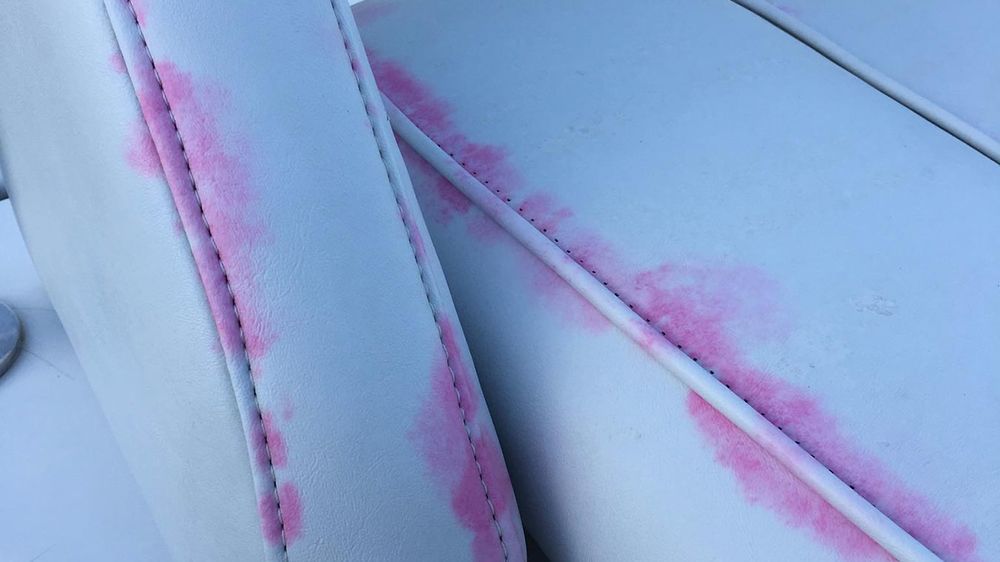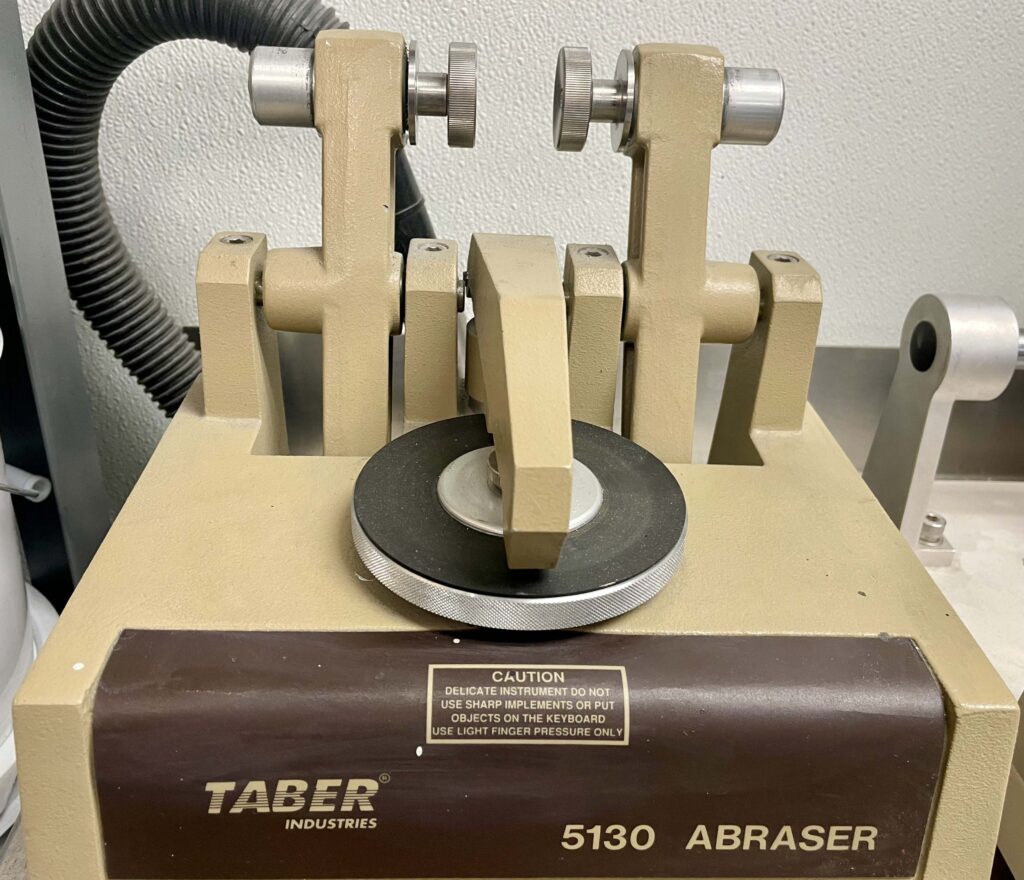
Moisture, stains and abrasion can wreak havoc on vinyl-upholstered surfaces, especially in high-traffic areas such as hospitality, healthcare, education and mass transit settings. To keep these surfaces looking good and performing well for the long-term, product manufacturers are turning to VYNGUARD® Performance Coatings, a line of oven-cured, PVDF-based coatings from APV Engineered Coatings that performs well in industry-standard testing.
The Great (But Dirty) Indoors
High-traffic indoor seating can be exposed regularly to dirt, stains and abrasion. Unforgiving stains like coffee, mustard, ketchup, permanent marker and blue jean dye challenge the longevity of the vinyl surface, especially as plasticizers migrate out of the vinyl and provide a pathway for stains to penetrate back into the topcoat.
Stain resistance can be quantified through a variety of industry standard tests. APV Engineered Coatings uses the ASTM D4966-98 Martindale Abrasion Test for denim stains and AATCC TM 8 Colorfastness to Crocking test to quantify the protective properties of VYNGUARD® Coatings. We also use two related tests to calculate abrasion resistance: ASTM D4157 Standard Test Method for Abrasion Resistance of Textile Fabrics and ASTM D4060 Standard Test Method for Abrasion Resistance of Organic Coatings by the Taber Abraser.

While vinyl upholstery protected with high-performance PVDF-based coatings such as VYNGUARD® Coatings can resist dirt and stains, surfaces do need to be cleaned from time to time. The increasing use of harsh cleaners and disinfectants, including quaternary ammonium chloride compounds (quats), places additional performance requirements on coatings.
Two industry standard methods for testing coating performance against aggressive cleaning protocols include CFFA-Healthcare 201 (Chemical Fabrics and Film Association Inc.) and BIFMA HCF 8.1-2017 Health Care Furniture Design Guidelines for Cleanability. In addition to these tests, APV also employs additional robust testing for VYNGUARD® Coatings, the most severe of which involves placing a printed and lacquered upholstery fabric wiped with quat cleaner in a hot (70oC/158oF) oven for 15 consecutive days, after which the samples are evaluated for changes in color, gloss, haptics, flexibility and hardness against the standard ASTM D-2240.
The Weather Outside Is Frightful
Just like indoor seating, outdoor seating surfaces need to be protected from stains and abrasion. However, they also need to stand up to damaging weather elements including exposure to moisture.
Pink staining is a common problem on seating surfaces in wet environments. Pink stain – caused by bacteria growth – fouls and discolors surfaces and it cannot be cleaned or removed once it appears.
PVDF-based VYNGUARD® Anti-Microbial topcoats help prevent pink stain from occurring and extend the service life and aesthetics of outdoor seating products by resisting film deterioration caused by gram-negative and positive bacteria. Their broad-spectrum activity also can fight against fungi, algae, and yeast. Unlike traditional lacquers, VYNGUARD® Anti-Microbial topcoats block the vinyl’s plasticizer from penetrating its protective layer, shutting down the pathway for stains and microbial growth to reach the vinyl substrate.
APV conducts accelerated weathering testing for VYNGUARD® Coatings under ASTM E1428 Standard Test Method for Evaluating Performance of Antimicrobials in or on Polymeric Solids Against Staining by Streptomyce species (a pink stain organism) to determine the long-term effectiveness of the coating.
Advanced PVDF Technology
VYNGUARD® Coatings use the power of advanced PVDF compositions, high-cross link density and UV inhibitors to exceed industry standards for resisting weathering, shedding dirt, and protecting against stains. They are highly resistant to abrasions and marring, while matching the flexibility and pliability of the vinyl substrate with soft haptics or hand feel. Because they are thermally resilient, VYNGUARD® Topcoats offer the added benefit of being able to be embossed with a pattern after the coating is applied, extending their use to upholstery with aesthetics such faux leather, linen, twill, canvas, basketweave, dotted patterns, and wood grain.

Cory Baker, Development Chemist at APV Engineered Coatings, has 24 years of experience in qualifying and formulating coatings and silicone rubber compounds for the wire and cable, automotive, aerospace, and industrial fabrics industries. In addition to formulating Vynguard®-brand lacquer technologies, he has a diverse background in numerous test standards, quality control, testing equipment, and production blending equipment. Cory also has long-standing knowledge of current global environmental regulations with respect to chemicals and is an expert in producing waterborne chemistries without sacrificing performance. He has a Bachelor of Science in Chemistry from the University of Akron and is an advocate for eco-conscious practices in the workplace.
 TEXTILES.ORG
TEXTILES.ORG


